I built a gaming PC using every crystal component I could find
If you’ve ever looked into building your own gaming PC then chances are you’ve stumbled across some really wacky, unique-looking components. From anime-inspired graphics cards to CPU coolers that can display your favorite gifs, many of these components allow you to create a rig that’s completely personal to you and stand out from many of the pre-built systems you can find on the shelves.
My personal favorite ‘unusual’ component is the recently updated Trident Z Royal Elite desktop memory kits from G.Skill, a luxurious-looking line that comes in either gleaming silver or gold, with a crystal-inspired RGB strip. The resulting effect is RAM that looks as though it’s plated with precious metal and encrusted with diamonds.
There’s truly nothing else like it on the market...that is, if you’re looking at memory. I noticed over the last few years that more products were slowly appearing on the market that had a similar ‘crystal’ vibe, namely the Palit GameRock series of graphics cards, the SilverStone IceGem AIO liquid CPU cooler and the MasterFan MF120 Prismatic case fans from Cooler Master.
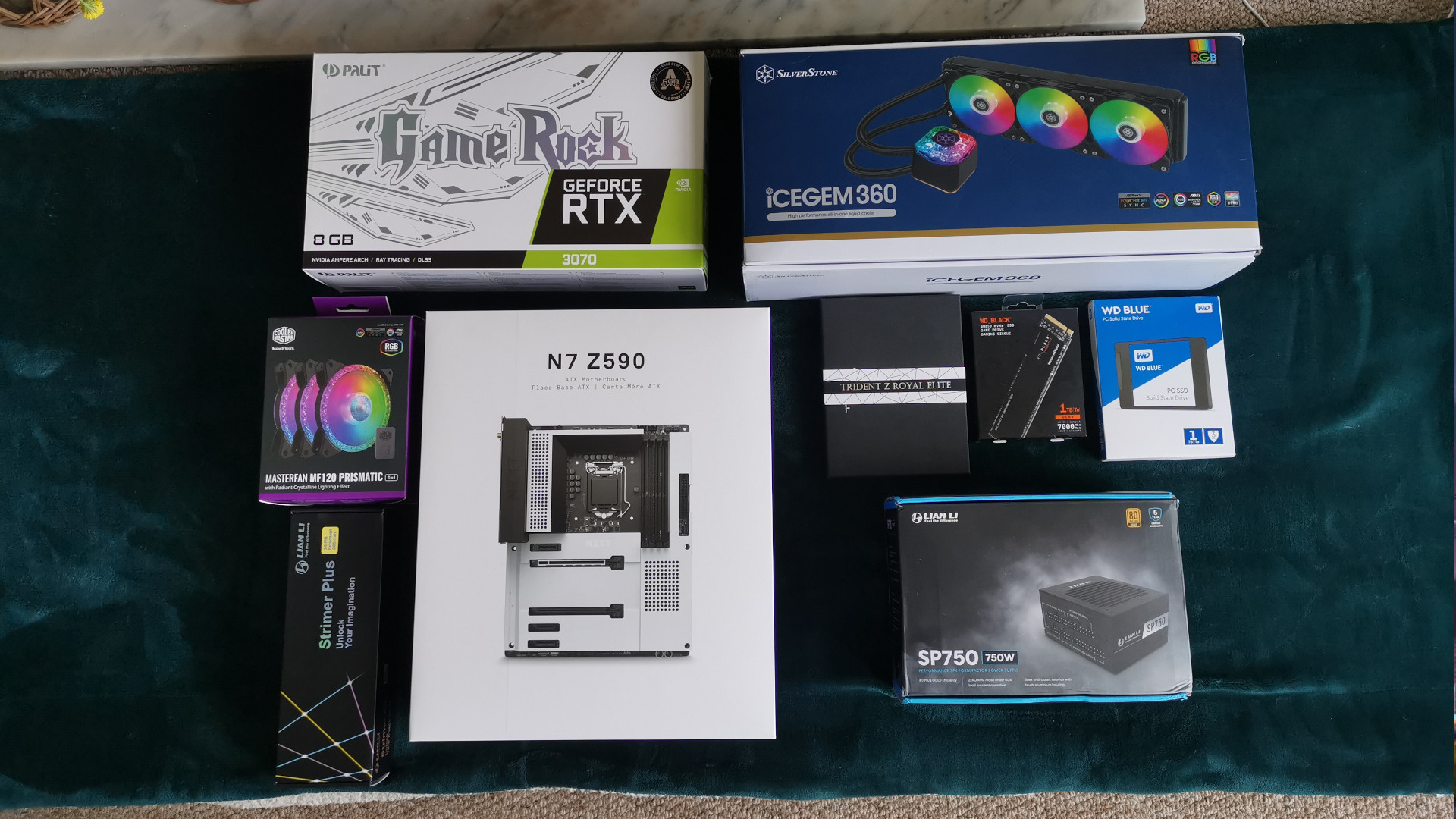
Here are the specs of the Crystal Modified Gaming PC:
CPU: Intel i7-11700K
GPU: Palit GameRock RTX 3070
RAM: 2x 8GB G.Skill Trident Z Royal Elite (3600Mhz)
Case: Lian Li 011 Dynamic Mini (Snow Edition)
Motherboard: NZXT N7 Z590
CPU Cooler: SilverStone IceGem 360 AIO Liquid Cooler
Case Fans: Cooler Master Masterfan MF120 Prismatic
Power Supply: Lian Li SP750
Storage: 1x WD_Black SN750 NVMe SSD 1TB, 1x WD Blue SATA SSD 1TB
Accessories: 1x Lian Li Strimer Plus, 1x CableMode AIO Cooler Sleeving Kit
All of these products feature the same geode-inspired crystal shroud for their RGB lighting, and while they don’t have the same gold or silver color scheme, I had yet to see them all in a build together. I had seen examples where two or even three of the above-listed crystalline components were placed into a build, but never all four. Naturally, I had to try it.
I’d never tried modifying a PC before so I won’t pretend to be an expert, but we all have to start somewhere and in this instance, I decided to make minimal adjustments, despite having experience in a workshop environment. I didn’t just want to slap all of these fancy-looking parts into a case and call it a day though, so I planned a few customizations that would blend the entire theme together.
I also had a goal to create a ‘girly’ gaming PC that wasn’t pink. I have zero issues with pink as a color, but it isn’t my aesthetic, and I’ve spent most of my years playing PC games on something that always put functionality over design, typically with a solid, windowless PC case. My love of all things sparkly perfectly suited these flashy components, so a build inspired by diamonds and other glimmering gemstones was an obvious choice.
Everything that glitters is for gaming
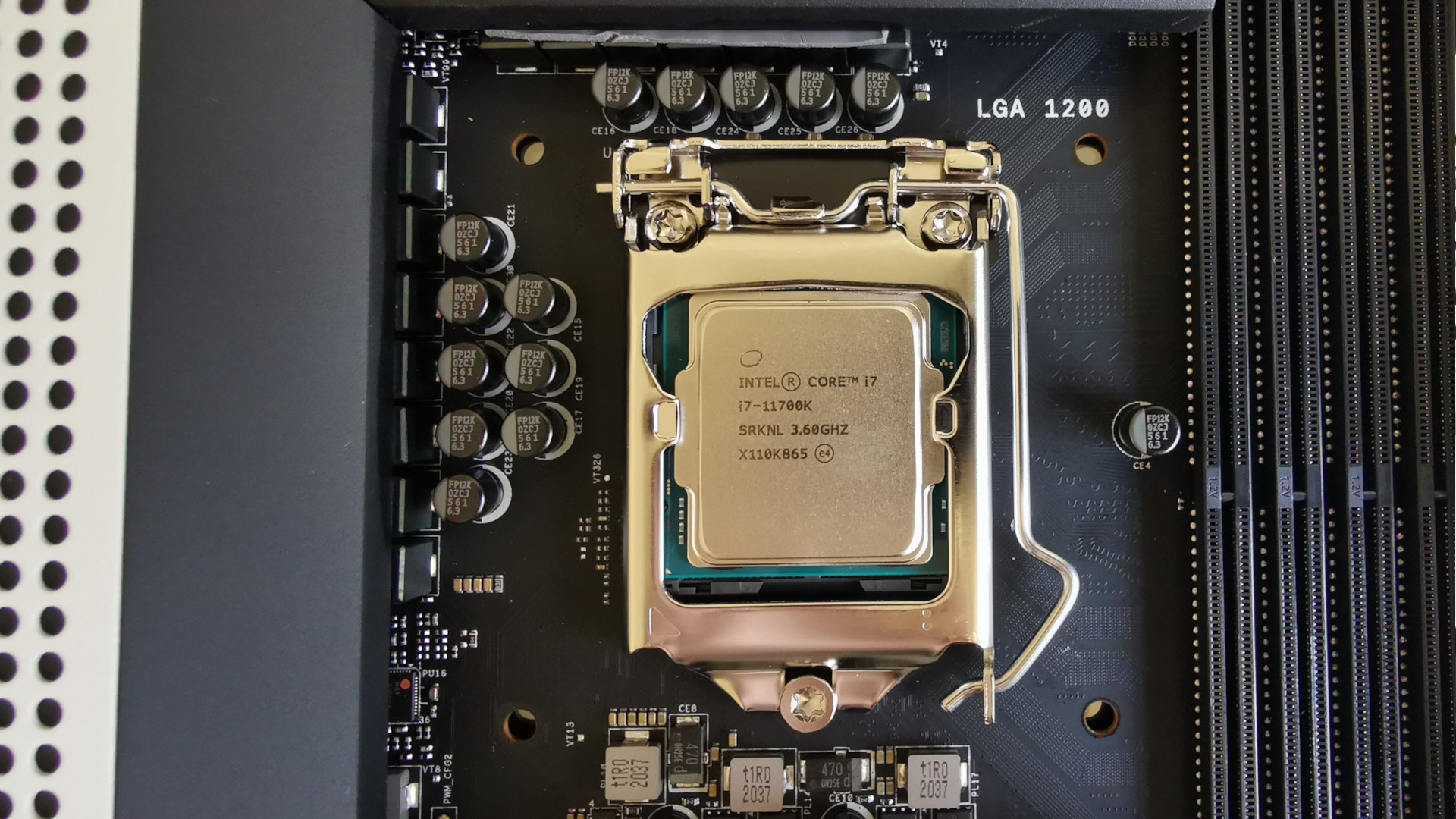
With that in mind, I decided a white base with minimal black would be the best color to build a blingy build around to better display all the crystal components I was about to throw together, which presented me with some obvious preferences for the rest of the components that would be needed.
The king of white PC cases right now is the Lian Li 011 Dynamic Mini Snow Edition. You can get the 011D Mini and 011D standard in both black or white, but the ‘Snow Edition’ case removes all of the black accents from the standard white version, and this particular case is well known for its modularity which would make modifying the case much easier. Given the customization was going to use a lot of glitter, it’s easier to only coat what you want when you can take the entire case apart and keep everything you want un-modified as far away from the sparkles and adhesive as possible.
A good second choice would have been the Corsair Crystal series (given its very appropriate name), but there isn’t an option in that range without any black or dark tinted glass.
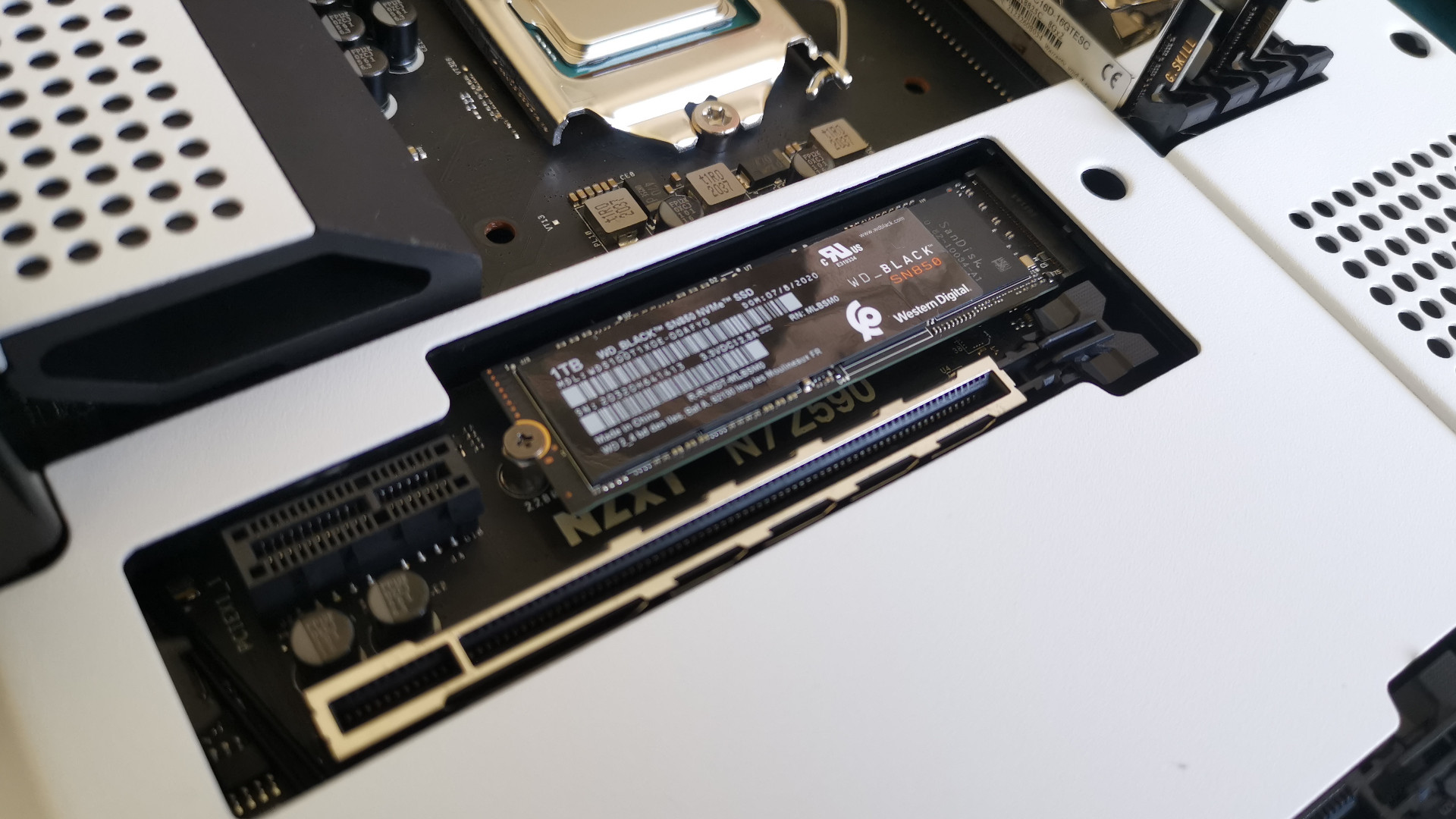
Similarly, most motherboards, even the white ones, are built around a black baseplate, but the N7 series from NZXT offers a compelling solution - a shroud that covers the more unsightly parts of the motherboard, giving your rig a much cleaner look. The N7 Z590 in Matte White creates the perfect base for the build, and has enough RGB headers to power all of the illuminated components that were going into the rig. Other fancy features include integrated Wi-Fi 6, an integrated rear IO shield, and space for two M.2 SSDs, as well as a layout that greatly assists with cable management.
As I was new to PC modification, I didn’t want to make my life difficult with an AMD build. The Ryzen series of processors are harder to find than gold dust at a reasonable price right now, and I’m a creature of habit (all of the PCs I’ve built myself from scratch have been Intel), so an i7-11700K was the perfect choice to pair with the N7 Z590 motherboard.
It’s worth mentioning that this custom rig was designed to put aesthetics over performance, so I’m not concerned with maxing out framerates or squeezing every last ounce of power, and an i9-series CPU would have been overkill for a machine that won’t be used as a workstation.
Bling wasn't built in a day
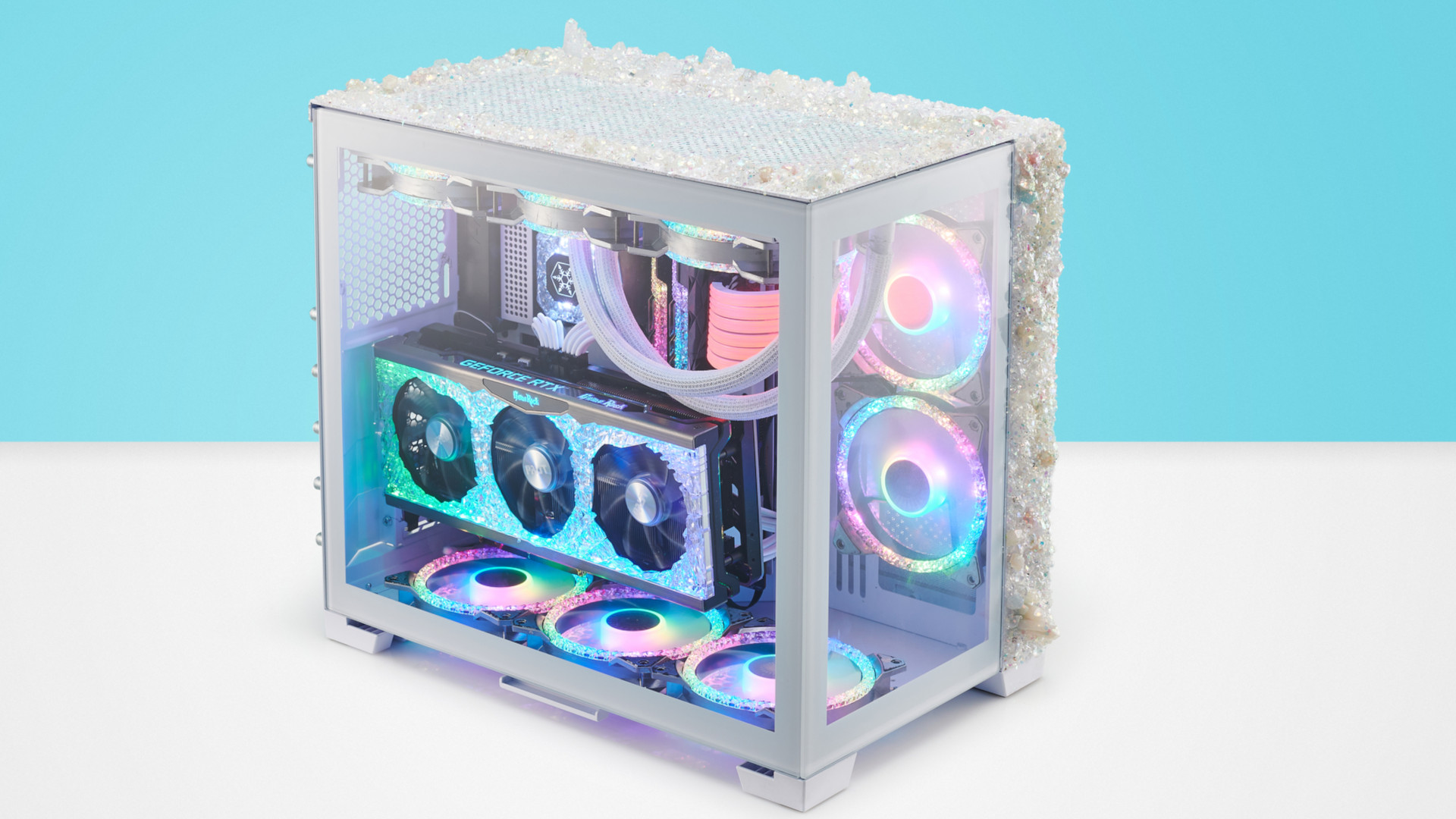
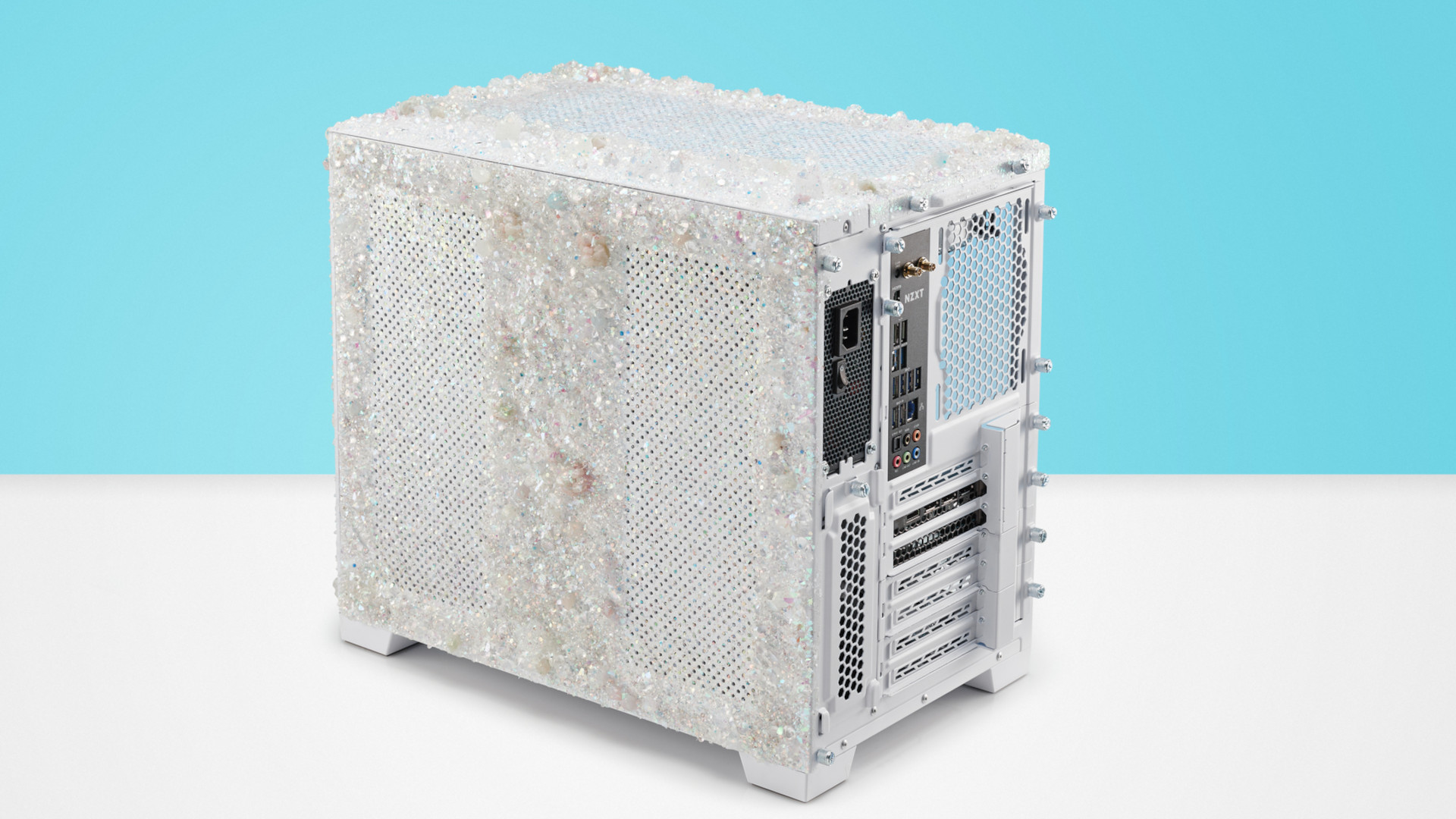
On a similar note, the G.Skill Trident Z Royal Elite RAM has a luxurious price tag to match its appearance, so 16GB of memory was all that was going into the system.
You can play just about anything with 16BG of RAM, and providing you’re not trying to open a million Chrome tabs and stream something on YouTube or Netflix while you’re playing a demanding game, you’ll get by just fine. The motherboard has four available slots for memory, so with 2x 8GB currently in use, you can always buy additional RAM at a later date – just remember to match the brand and frequency for optimal performance.
If you’re also a fan of all things sparkly and for some reason want to replicate this build yourself, I’ll detail where I made mistakes so that you don’t stumble into the same issues. If in doubt, customer service for brands is your friend. Lian Li are extremely knowledgeable and gave me a few heads up that would have undoubtedly caused me issues down the line, the first being that the 011D mini PC case isn’t compatible with standard-sized power supply units, so you’ll have to source a smaller SFX or SFX-L power supply to use. To make compatibility a bit easy, we ran with the Lian Li SP750 SFX Modular PSU.
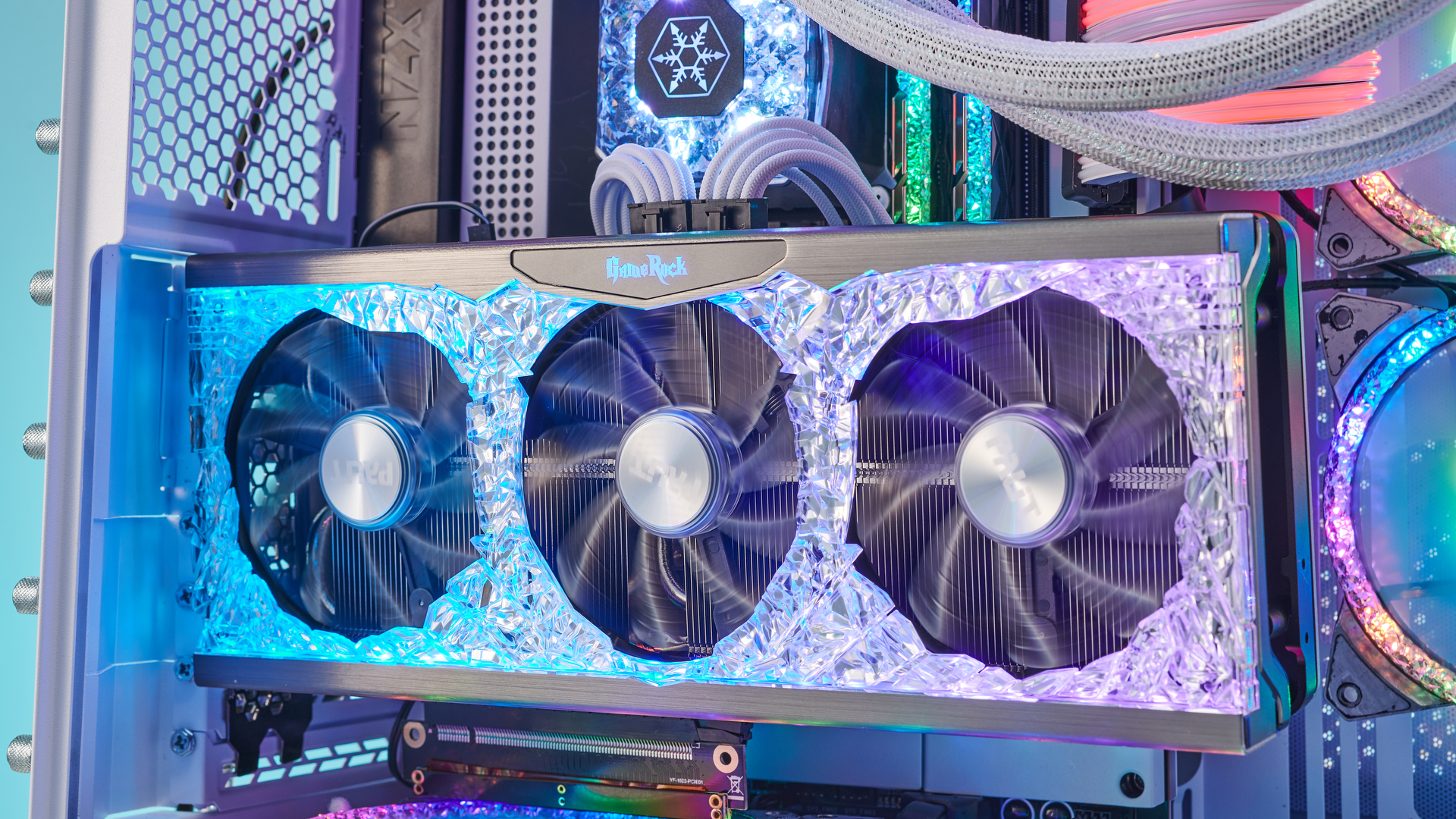
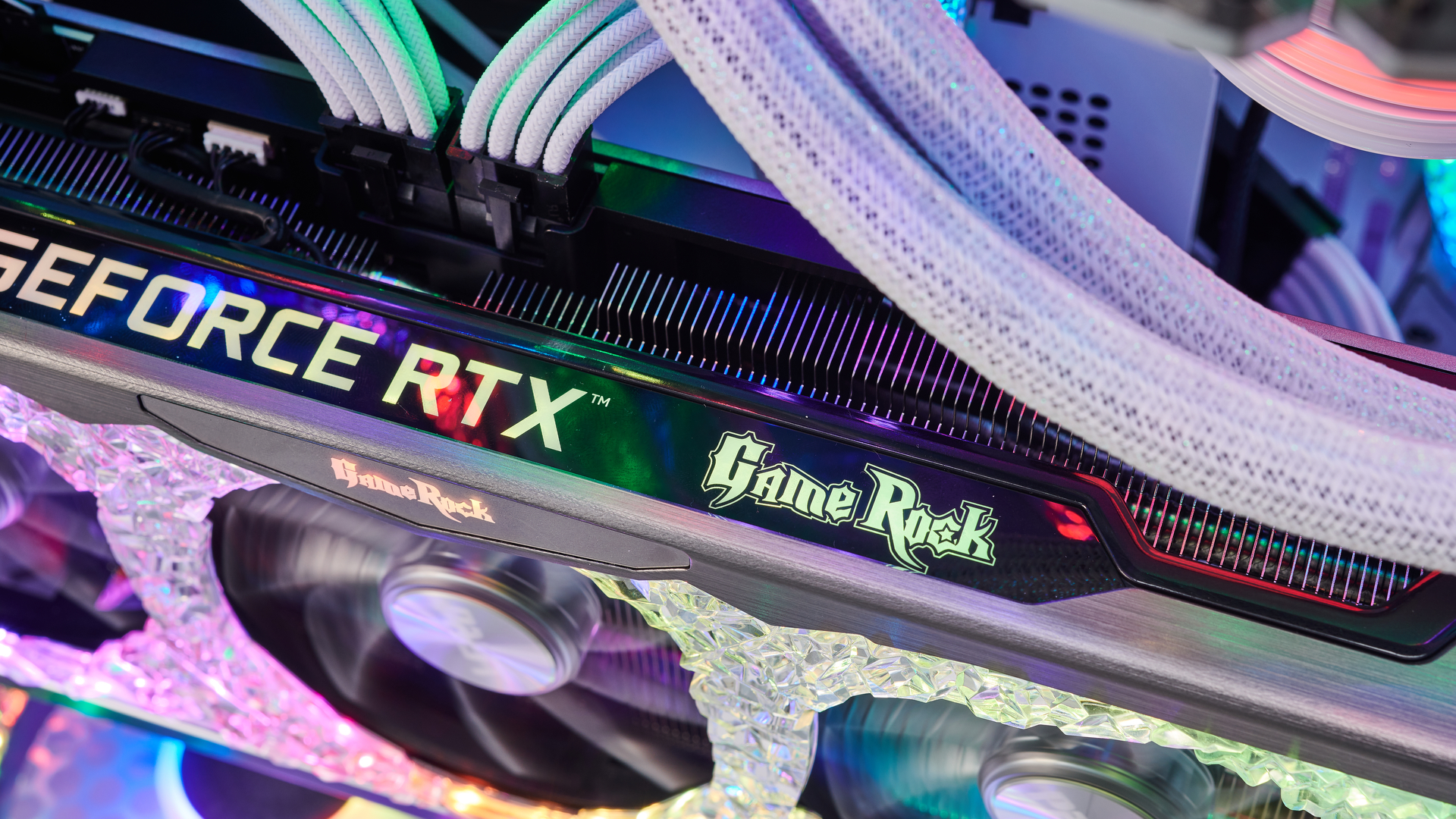
The fans of the Silverstone Ice Gem CPU cooler were replaced with the Prismatic Masterfan series from Cooler Master, albeit with a small modification. Given I was looking to reduce the amount of visible black in the build, the CPU block and the frames of the case fans were painted in ‘Mirror’, a chromed paint from Culture Hustle to better match the G.Skill Trident Z Royal Elite RAM kit, but despite sealing the paint with clear lacquer, it rubbed off easily during installation. If you were looking to do a similar customization, I would suggest sourcing a specialized paint for plastic surfaces.
Something that had to be adapted during photography was that the Lian Li Vertical Riser Kit didn't arrive on time, and the standard GPU mount really doesn't do the build any justice as that splendid crystalline fan shroud is located on the bottom of the graphics cards. We improvised by clamping the GPU into position to snap some shots of it facing the front of the case, but for any eagle-eyed readers who spotted the lack of mount, rest assured the card was properly re-installed.
A few accessories finish up the list, with a kit to replace the standard black power supply cables, a CableMod AIO Sleeving kit to cover the black tubing from the CPU cooler and a Lian Li Strimer to connect the motherboard to the PSU - because we didn’t have enough RGB in the case for my liking.
Mistakes were made
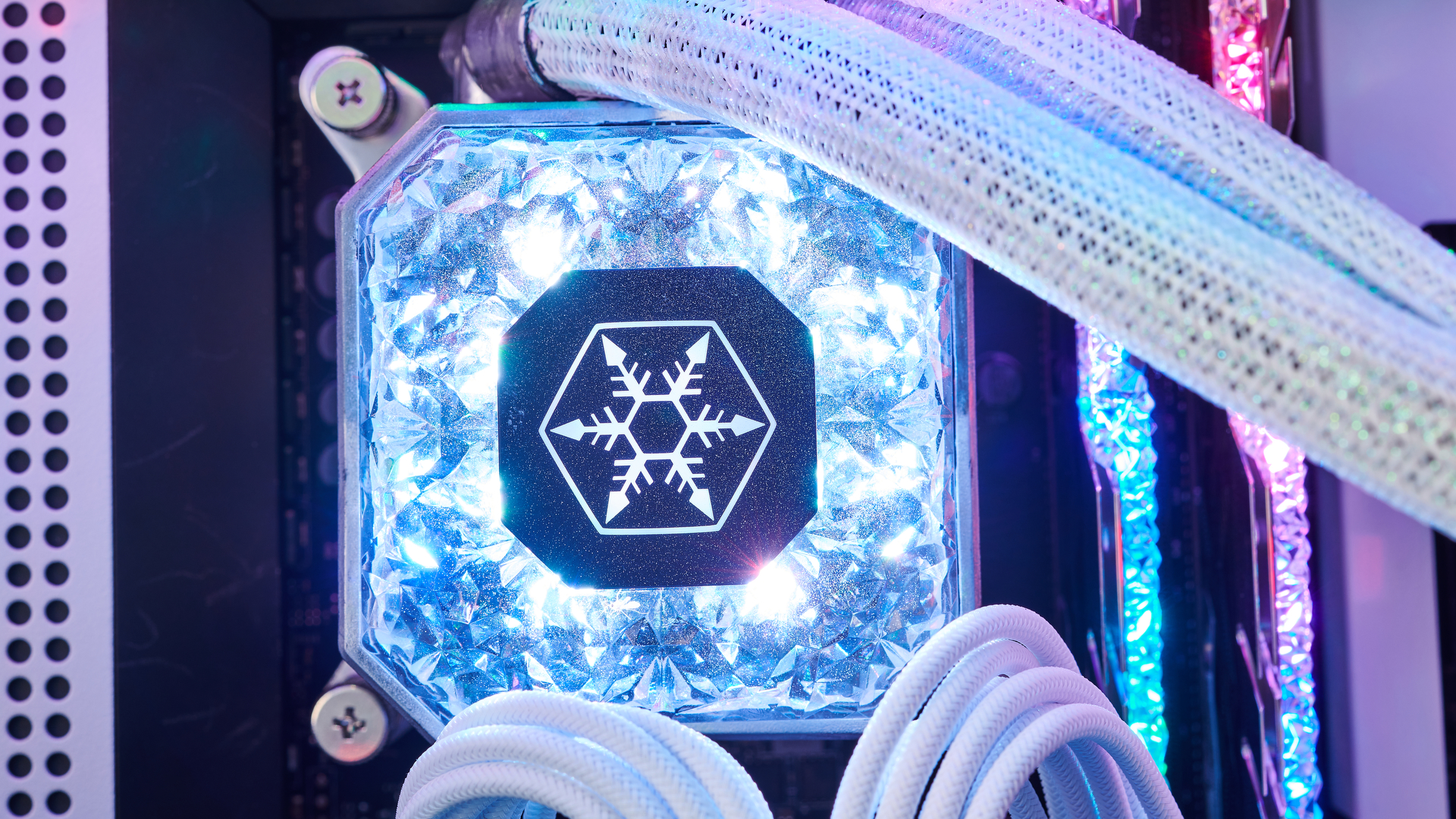
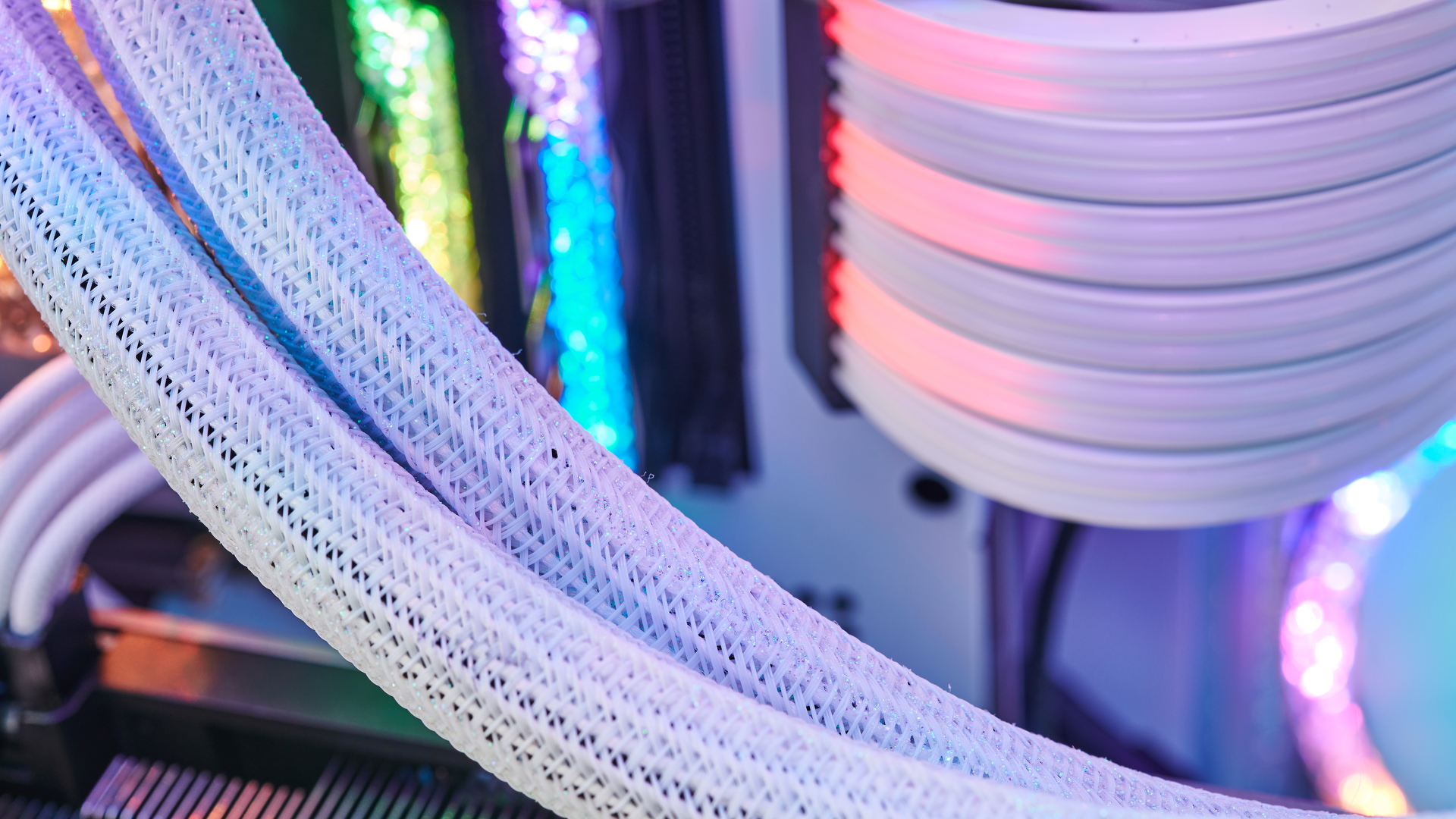
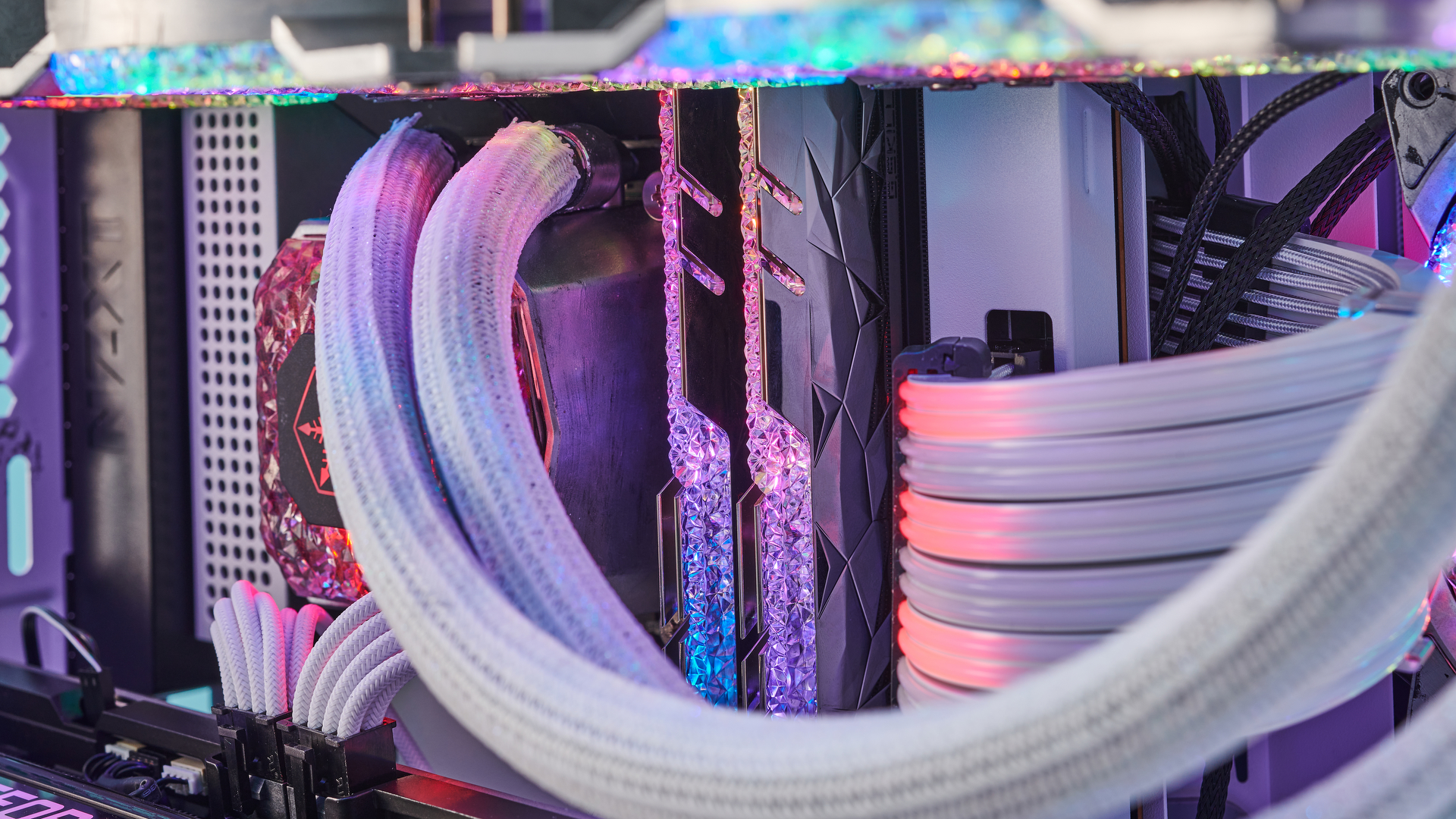
A traditional 360-sized AIO cooler radiator can’t be properly top mounted into the case, but a few YouTubers who had also used the 011D Mini had found a suitable solution - the humble cable tie. With a bit of messing around, the rad can be tied into the top of the case and then the magnetic dust filter helpfully conceals the resulting straps. I had gone to the trouble of spraying the radiator with heat-resistant white paint, though the fans and filter covered most of the radiator from view, so this was an unnecessary modification.
The sleeving kit for the AIO cooler caused additional issues. The mesh white tubing was painting with flexible, shimmering fabric paint and while it was perfect for the job of covering the original black tubing, the end caps intended to make the customization look neater by hiding the rough edges of the sleeves didn’t fit, and a few attempts to 3D print a better alternative on my AnyCubic Vyper FDM Printer failed as I couldn’t get the sizing right. Again, if you’re looking to do a similar modification, a 3D printed solution would work if you can test a few sizing options, but sadly I ran out of time.
The case modifications were actually very simple, but extremely messy. First, I detached the panels and set aside the glass ones that I didn’t want to get covered in the mess that was about to ensue. The back and side panels (and all exposed ports and buttons) were then taped with decorators tape to protect the ventilation holes from getting gummed up, and resin-cast crystals and stones were painstakingly glued to the case individually.
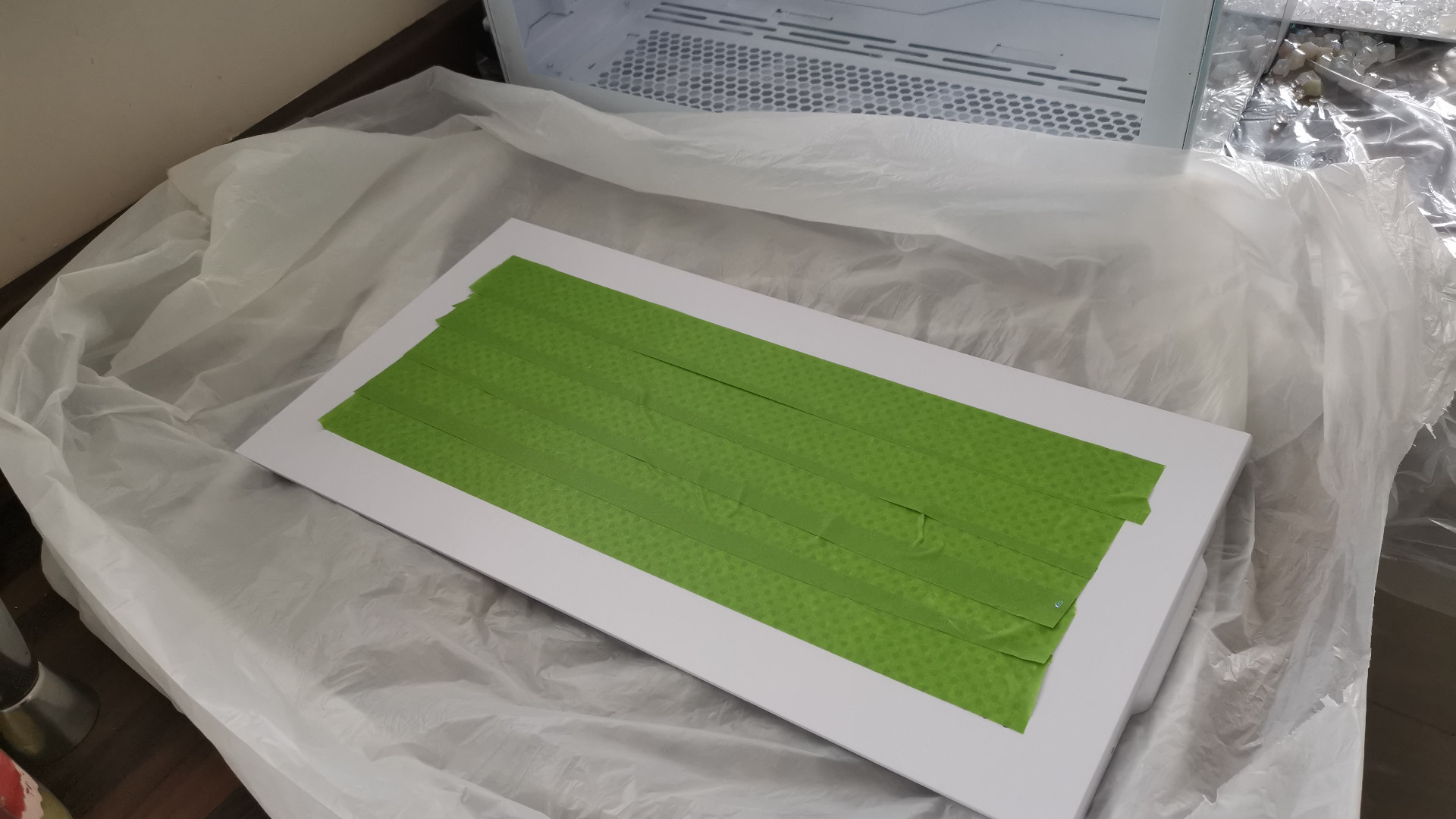
After that, a spray contact adhesive was used to coat the remaining space with table scatter crystals and chunky iridescent glitter to emulate the inside of a cut geode, and the tape was removed for glitter to adhere around the ventilation grills. A boring but important precaution taken while this was drying was an hour spent poking a wooden BBQ skewer through every hole in the grill to make sure nothing was obstructed to keep airflow optimal, though if I had to do this again I would opt for using finer glitter over the grill area.
The images don't quite do the result enough justice, at least regarding how iridescent and sparkly it is. I was gaming for something more inspired by opals and moonstones that just clear diamonds, so a lot of color-shifting pigments and glitter were used to create some of the resin gemstones and when you move around the case or a moving light source hits it, the effect shimmers vibrantly.
To prevent any loose glitter from shifting or falling, three coats of clear lacquer were applied over the top after as much access as possible had been dusted and hoovered off the case, though as with most crafts where glitter is involved, there's always going to be some fallout.
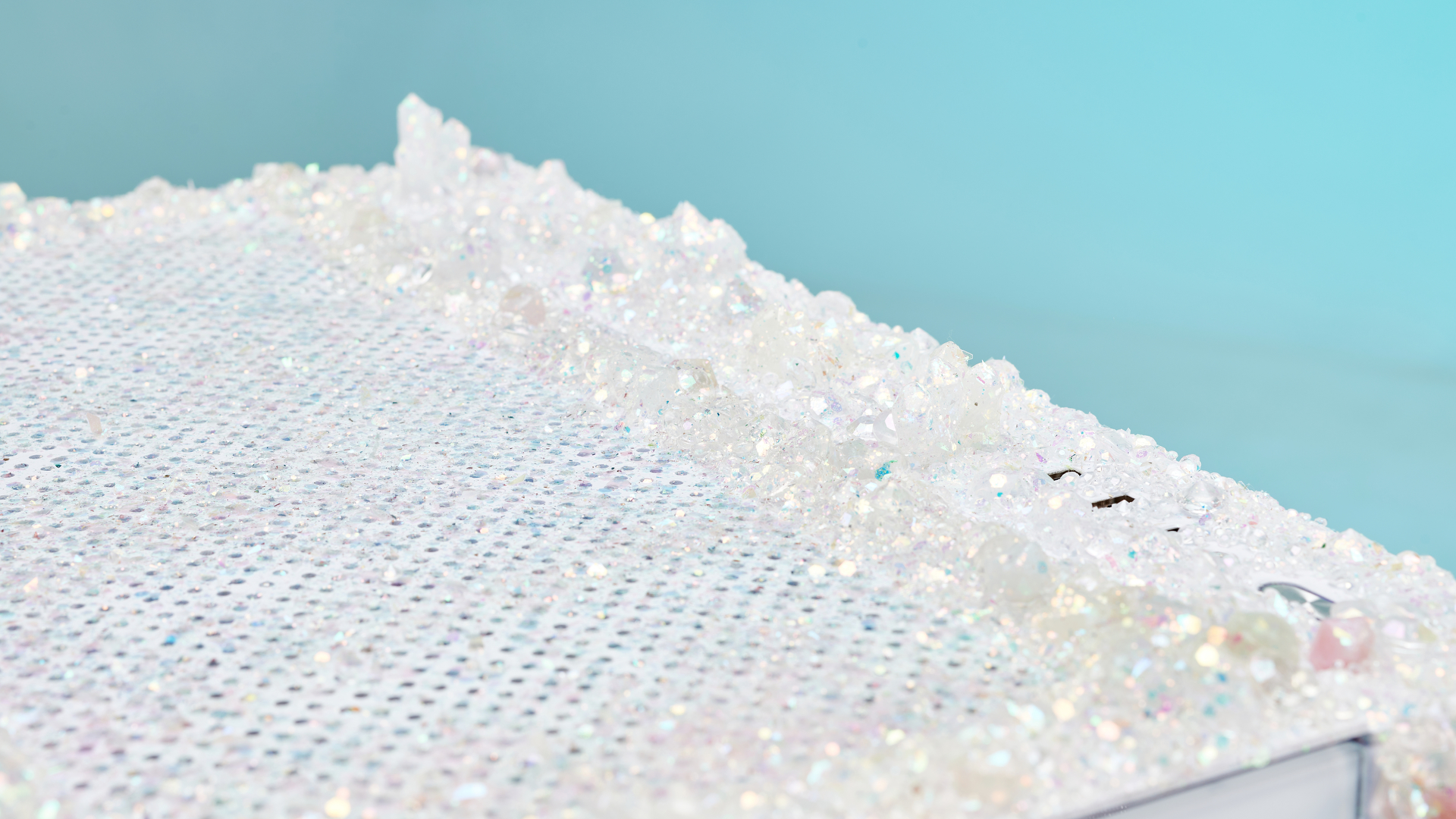
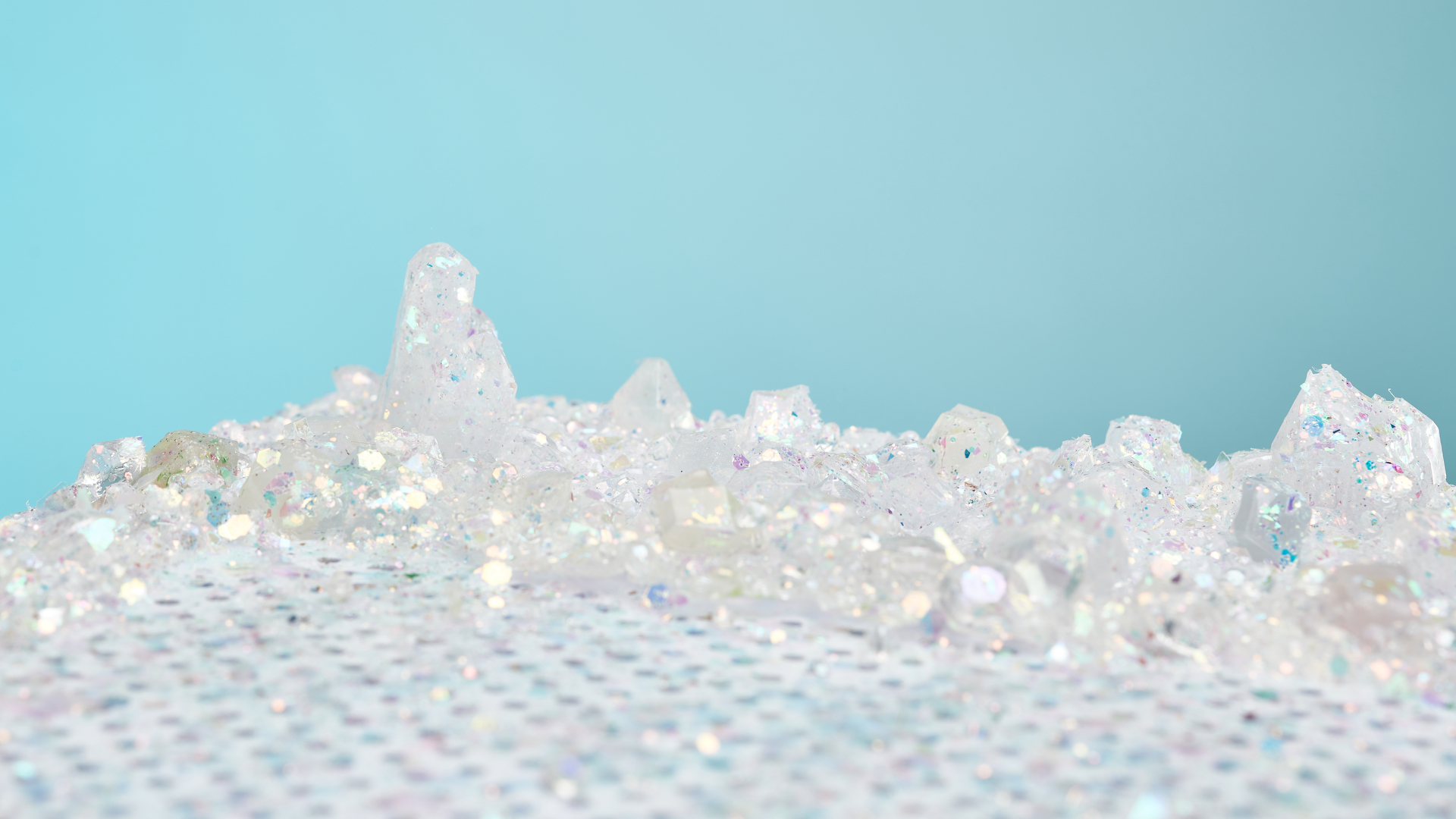
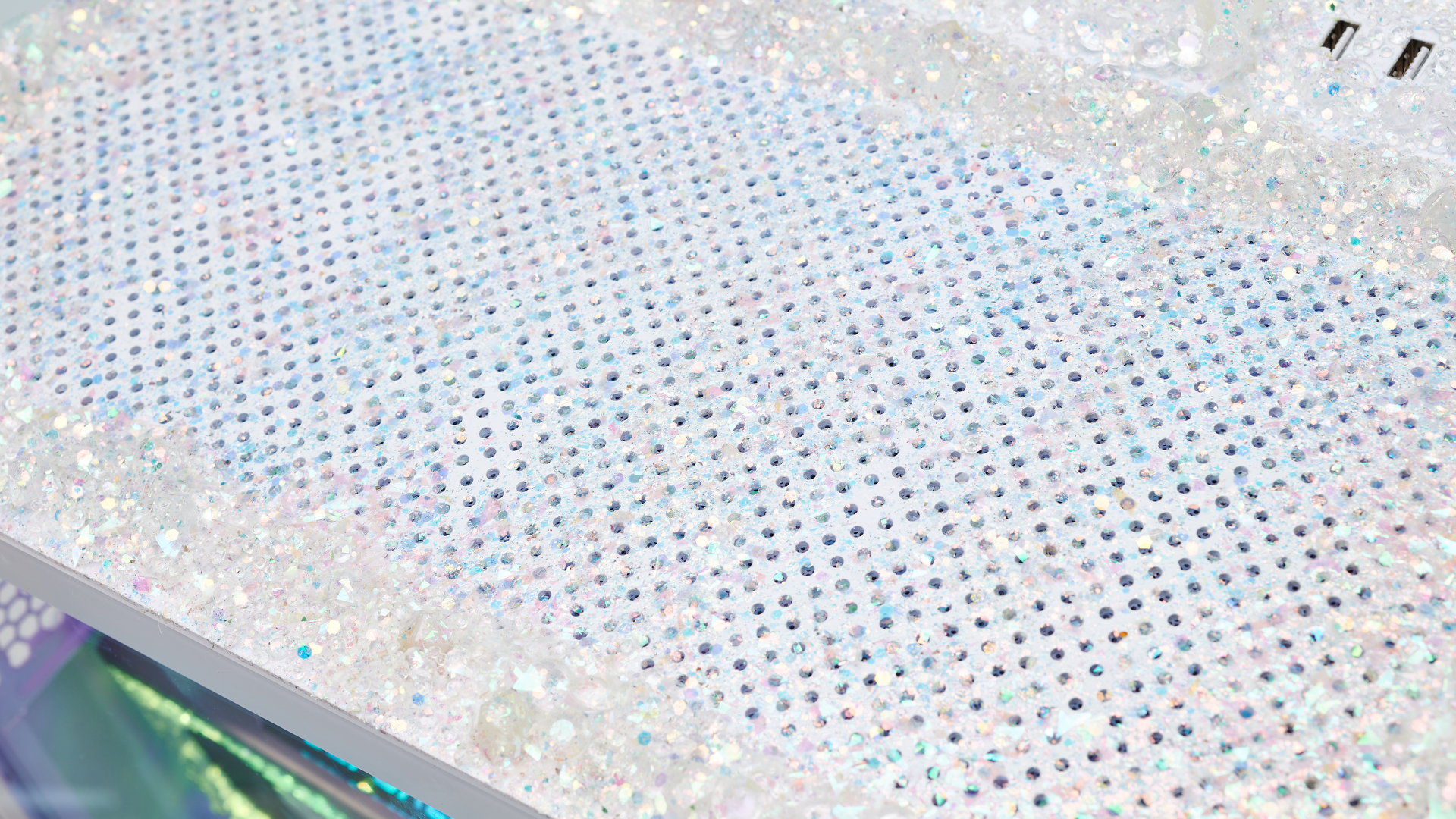
How to improve on the next build
On the scale of PC modifications, this build would rank fairly low for complexity. There's a lot going on (and enough RGB lighting to cause most people who look at it for too long a headache), but the actual modification process was very novice and straightforward, unlike some of the more skillful builds you can find online. There are some great examples displayed at events like Computex every year, or you can also check out the Case Mode World Series if you want to look at some really amazing systems that have been put together by professional modders in the community.
Despite its simplicity, I wouldn't have changed my concept for this crystal-inspired rig, though the mistakes that were made by trial and error are certainly a learning experience I'll be taking into future attempts at creating more complex modified systems.
The types of materials used for modifications were not ideal given the chrome paint would rub off despite being sealed, and the resulting build will look much cleaner when I can find a solution to cap off the AIO CPU cooler tubing sleeves. PC modding forums and subreddits are a valuable source of information, and while every build is unique, there are people within the community that have spent years creating custom computers and hold valuable experience from their own experiments.
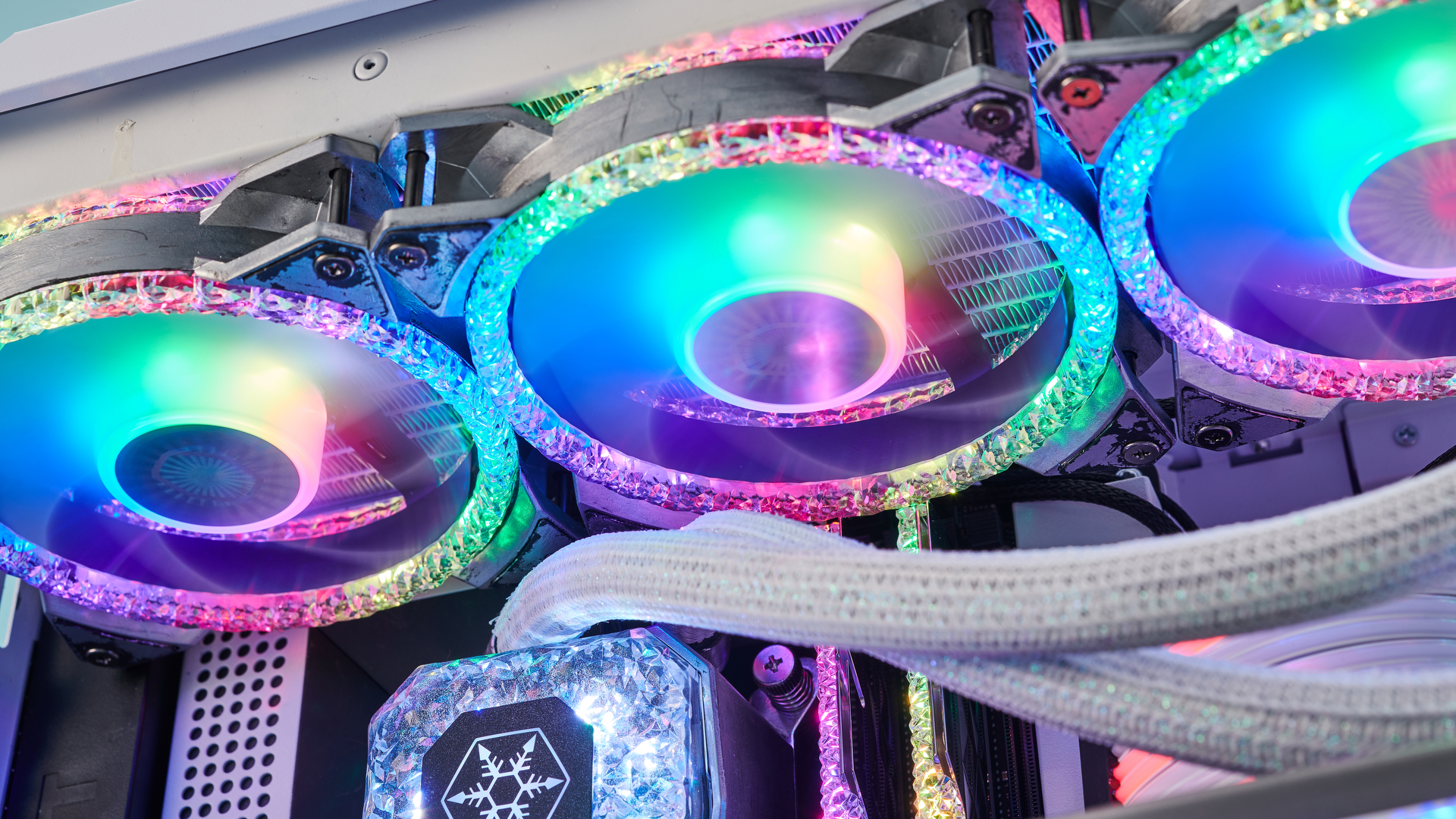

I'll be playing around with the RGB colors over the coming weeks to find the best combinations to suit this build, but the standard rainbow 'unicorn vomit' was used in the photographs. The blinding mix of colors and effects suited the chaotic vibe I was going for, even if it does make your eyes hurt.
This isn't going to win any prizes for practicality, but the experience of designing and then building this system opened my eyes to a wider world of case modifications. I'm certainly not planning to build the same system again, and I completely understood going into this that excessive amounts of glitter probably shouldn't mix with building a computer, but I'm very happy with the overall result. Now I just need to vacuum all the residual glitter from my carpets...again.
Contributer : Techradar - All the latest technology news https://ift.tt/3BHIFSK

 Reviewed by mimisabreena
on
Monday, September 06, 2021
Rating:
Reviewed by mimisabreena
on
Monday, September 06, 2021
Rating:














No comments:
Post a Comment